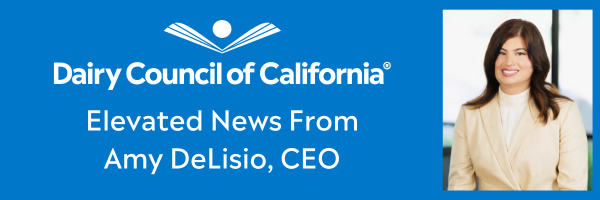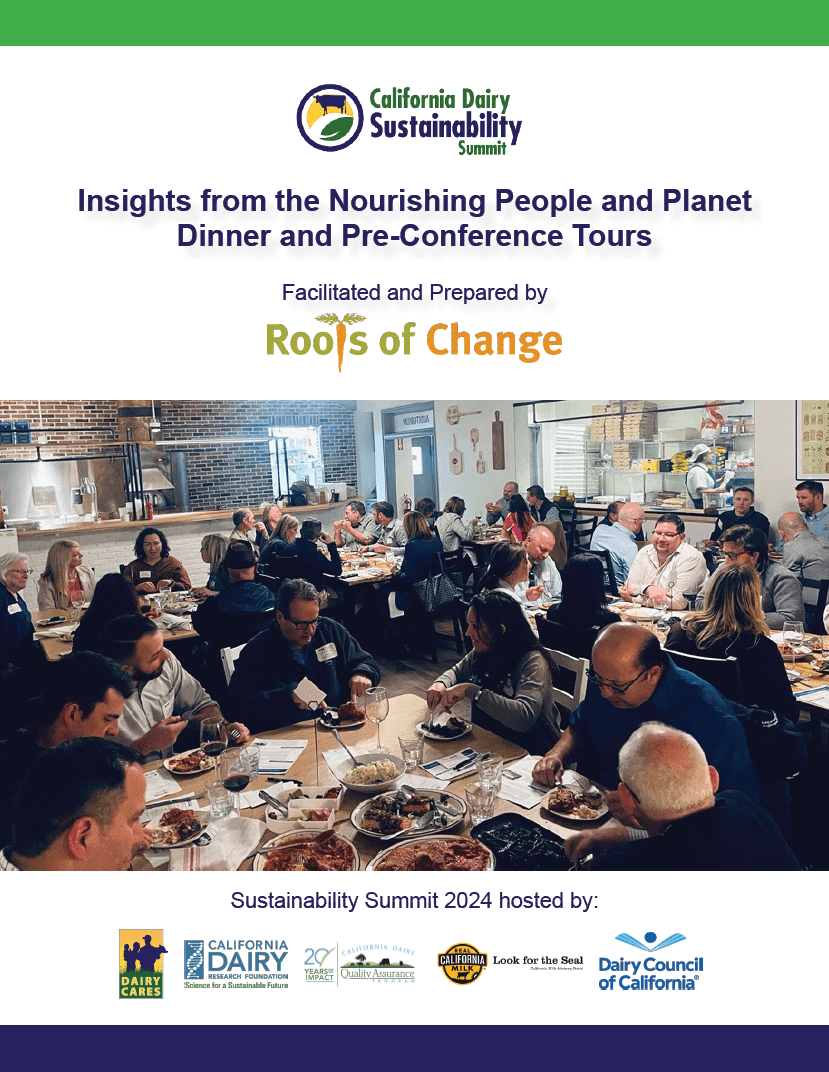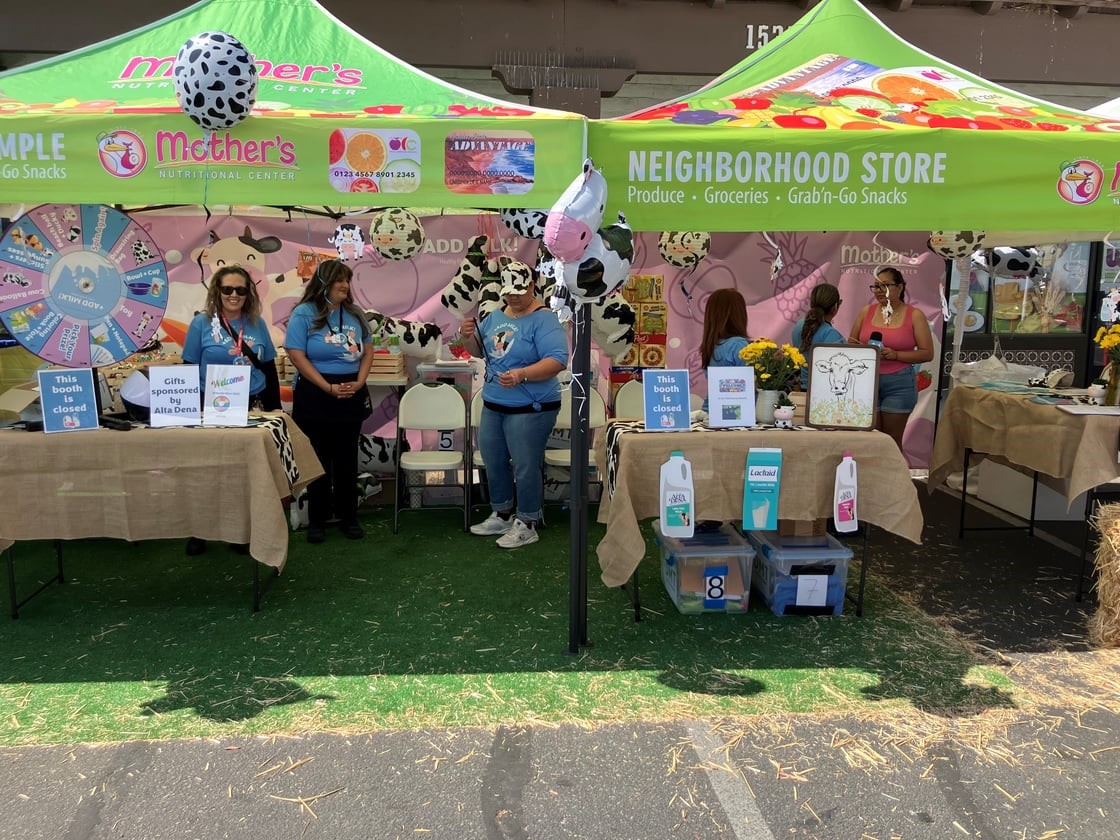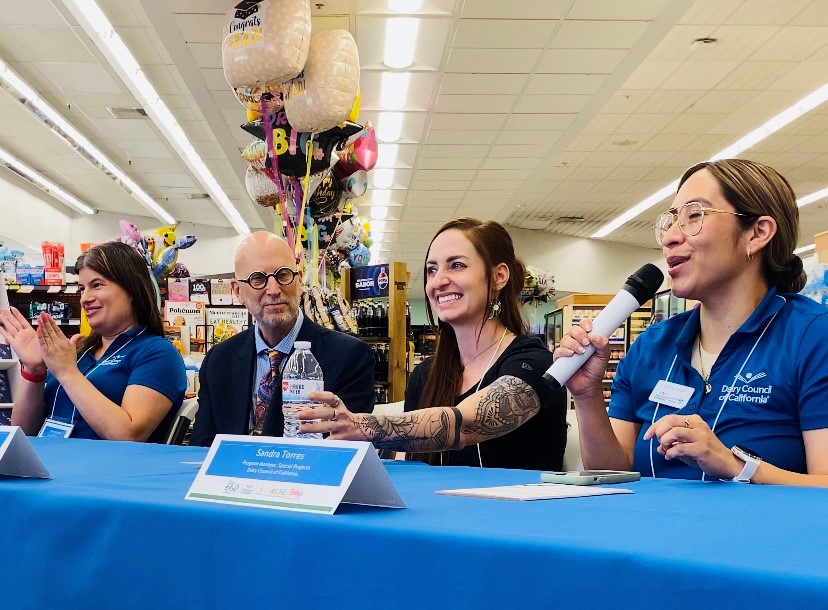
Dear Friend,
Dairy Council of California continues to engage health professionals, educators, community leaders and more to elevate the health of children and communities through lifelong healthy eating patterns. Below are some regulatory updates that may impact the dairy community, as well as highlights of recent efforts to educate and advocate on the health benefits of milk and dairy foods.
The fifth meeting of the 2025 Dietary Guidelines Advisory Committee (DGAC) was held on May 29–30, 2024. Updates on the latest progress, including new, revised and deprioritized protocols, as well as new draft conclusion statements, were shared. In addition, the Health Equity working group detailed how health equity is being integrated across the evidence review process.
Here are some key takeaways, including those relevant to dairy foods:
The release of the new and revised protocols is expected soon. Dairy Council of California continues to engage throughout the Dietary Guidelines process, translating dairy nutrition science that advocates for milk and dairy foods’ role in healthy eating patterns. In March, Dairy Council of CA submitted public comments to the DGAC in response to the Food Pattern Modeling Protocols, and it will continue to provide evidenced-based information on the numerous health benefits of dairy. You can add your voice as well. Public comments to the DGAC are due by October 2024 (Docket HHS-OASH-2022-0021).
 On March 25, 2024, the California Dairy Sustainability Summit 2024 planning team facilitated pre-conference events,
including guided tours of University of California, Davis research labs and a dinner dialogue with diverse dairy and nutrition stakeholders. The focus of the pre-conference was on dairy’s role in sustainable nutrition, emphasizing a holistic
approach to sustainability. The event highlighted dairy’s contributions to human nutrition, the environment and the economy, while exploring innovations and challenges in the industry.
On March 25, 2024, the California Dairy Sustainability Summit 2024 planning team facilitated pre-conference events,
including guided tours of University of California, Davis research labs and a dinner dialogue with diverse dairy and nutrition stakeholders. The focus of the pre-conference was on dairy’s role in sustainable nutrition, emphasizing a holistic
approach to sustainability. The event highlighted dairy’s contributions to human nutrition, the environment and the economy, while exploring innovations and challenges in the industry.
Read and download the full report here.
Here are key activities and outcomes from the pre-conference:
Sustainable Nutrition Defined:
University of California, Davis Tour Topics:
Dinner Dialogue Themes:
Implications:
Opportunities and Recommendations:
 +Add Milk! Program Launch and Event
+Add Milk! Program Launch and Event Dairy Council of CA proudly served at the launch of the +Add Milk! Program event in San Bernardino. Organized by Mother’s Nutritional Center, the program aims to increase milk purchases by low-income consumers participating in the Supplemental Nutrition Assistance Program, offering $1 cash back for eligible milk products, up to $10 per transaction, at participating stores where Alta Dena is the exclusive milk provider (and Dairy Pure for lactose-free dairy). The event focused on educating the community about the importance of milk in the diet and included an open press event and a roundtable discussion.
Dairy Council of CA Registered Dietitian Nutritionist Maria Frye engaged with several key stakeholders, emphasizing how milk and dairy foods contribute to nutrition security and highlighting the Let’s Eat Healthy Initiative, which promotes lifelong healthy eating patterns that include milk and dairy foods to enhance the health of children and communities.
The +Add Milk! Program is funded through a $3 million cooperative agreement between the U.S. Department of Agriculture and Auburn University’s College of Human Sciences Hunger Solutions Institute.
 My First 1,000 Days Media Event
My First 1,000 Days Media EventDairy Council of CA, in collaboration with the Raley’s Companies Legacy Health Endowment and Community Health Centers of America, celebrated the success of the First 1,000 Days Dairy Initiative at an event in Newman, California. This initiative, supported by a $250,000 grant from Legacy Health Endowment, provides culturally relevant nutrition education and monthly funds to help families with young children purchase nutrient-dense milk and dairy foods. The event highlighted the positive impact on family nutrition, featuring a panel of speakers, program materials and dairy recipes. Attendees, including community members and media partners, engaged with program participants and discussed the initiative's benefits. Additionally, the program’s success in supporting early childhood nutrition was emphasized.
Learn more about this event here.
If you have questions, concerns or feedback you would like to share, please do not hesitate to reach out.
Best regards,
Amy DeLisio, CEO
Dairy Council of California
adelisio@DairyCouncilofCA.org